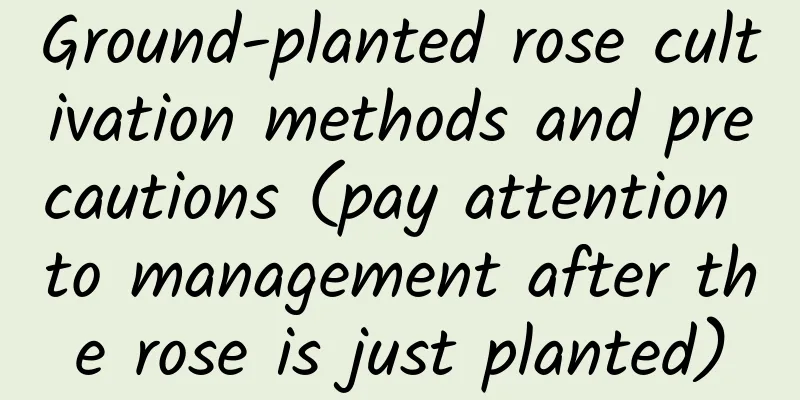How long is the growth cycle of small-leaf red sandalwood?

Introduction to the growth of red sandalwood Small-leaf red sandalwood is suitable for planting in an environment with plenty of sunlight, and the red sandalwood produced in India is the best. It is produced in small quantities in Yunnan and Guangdong in my country. Growth cycle of red sandalwood It takes 800-1000 years for the small-leaf red sandalwood to mature. It likes sunlight and cannot tolerate low temperatures. The temperature in winter should not be lower than 3 degrees, which is conducive to its growth. Growth rate of red sandalwood Dalbergia small-leaf has relatively high requirements for soil and is suitable for growing in loose and fertile soil. It grows slowly, with one annual ring every five years, and it takes more than 800 years to mature into timber. Growth cycle management of red sandalwoodTemperature management: When growing red sandalwood, you need to give it sufficient light and maintain a relatively high growth temperature. The seedlings cannot withstand temperatures below 3 degrees. Fertilization management : Generally, the most suitable fertilizer for small-leaf sandalwood is compound fertilizer, but it does not need too much fertilizer and the frequency of fertilization is very low. |
>>: How many years does it take for peaches to bear fruit?
Recommend
When do grapes ripen?
1. Time to mature There are many varieties of gra...
Tips on how to plant onions and when to plant
Suitable time for planting onions Scallions are s...
Can cherries be grown in Hunan?
Can cherries be grown in Hunan? Hunan is suitable...
Can boiled water be used to water flowers?
Cold boiled water is water that has been cooled a...
What flowers are suitable for growing in Bazhong? What are the city flowers and trees?
1. Climate characteristics of Bazhong Bazhong has...
Can I grow ginseng at home?
Can I grow ginseng at home? You can grow ginseng ...
How to grow freesia hydroponically
1. How to put After freesia is hydroponically cul...
How to grow pineapple flowers
1. Selection of potting soil A well-drained subst...
The growing environment and local conditions of bracken
Bracken growth environment and conditions Bracken...
Disease prevention and control of Parthenocissus tricuspidata
powdery mildew: The disease can occur from seedli...
What flowers to give to the girl you are pursuing
1. Red Rose Red roses are the most commonly used ...
How to grow white magnolia
1. Suitable lighting Magnolia likes sunlight and ...
How often should I water the fortune tree in summer?
How often should the money tree be watered in sum...
Suitable growing environment for mushroom cultivation
Shiitake mushroom cultivation conditions Shiitake...
Is mirror grass poisonous? Can it be grown at home?
Is mirror grass poisonous? The editor first tells...









